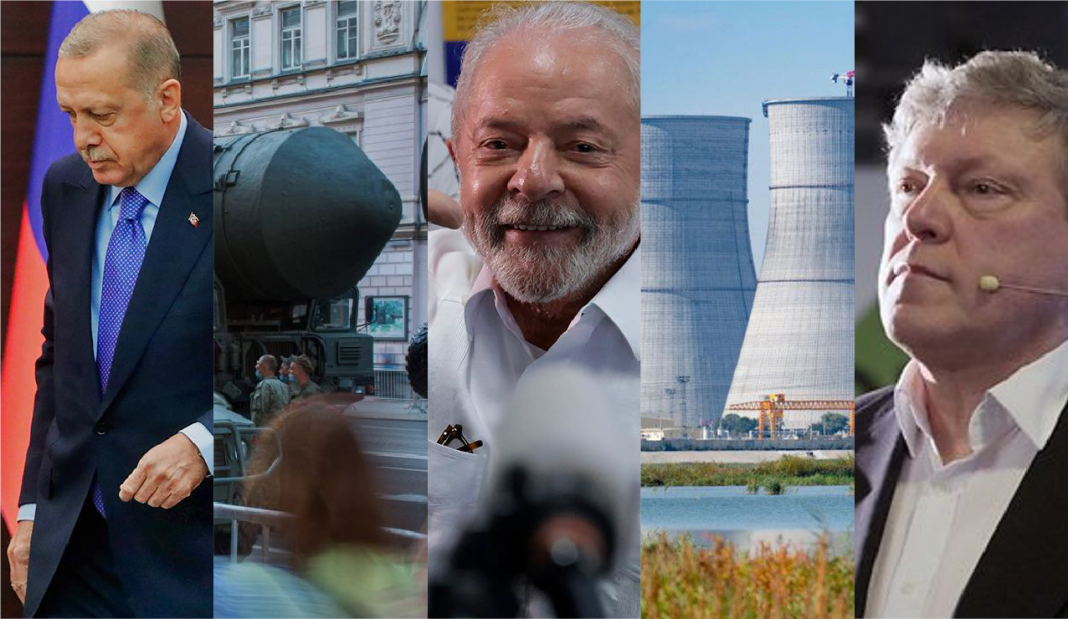This report describes the key events that significantly impacted Russia’s political, economic, and social processes.
Based on the results of the past week, the following trends can be summarised:
- Putin is demonstrating in every possible way the importance of the Latin American direction for the further development of relations between Russia and the Global South. In this case, Lula da Silva is a highly desirable ally today, not only because of Brazil’s presidency of the UN Security Council. Also, Brazil and Russia could potentially form an “internal front” within BRICS, which would allow Putin to gain new allies within the organisation and reduce dependence on China.
- Russia is becoming more and more actively involved in the conflict in the Middle East, which intensifies communication with Türkiye. Both Russia and Türkiye morally support the Palestinians and accuse Israel of failure to implement the Oslo Accords (regarding the creation of an independent Palestinian state). For Türkiye, the situation is all the more significant since the conflict around Hamas and Israel unfolded on the historical lands of the Ottoman Empire, exactly on the eve of the centenary of the creation of the Turkish Republic. This is perceived painfully by conservative Turkish circles, which are considered Erdogan’s support. Putin is trying to act as Erdogan’s ally in the Middle East to redirect his activities from Syria and the South Caucasus.
- The events in Dagestan that unfolded over the weekend were clearly pre-planned. Although a large number of Jews traditionally live in Dagestan, they play an essential role in the life of the republic. Versions regarding the provocation of anti-Jewish protests by subversive centres on the territory of Ukraine or Turkey, as well as the attempt to link oppositionist Ilya Ponomarev to organising the protests, look too far-fetched. At the same time, it is worth assuming that serious personnel changes may soon occur with a shift in the main groups of influence in the region.
This report highlights the following topics that were most relevant for Russia during 23rd – 29th of October:
1. Telephone conversation between Vladimir Putin and Brazilian President Luiz Inacio Lula da Silva;
2. Meeting of Vladimir Putin with Deputy Prime Minister – Minister of Industry and Trade Denis Manturov;
3. Telephone conversation between Vladimir Putin and Türkiye President Recep Tayyip Erdogan;
4. Training of strategic deterrent forces with practical launches of ballistic and cruise missiles;
5. Meeting of Vladimir Putin with members of the Government;
6. Meeting of Vladimir Putin with Grigory Yavlinsky;
7. Statement by the Russian Ministry of Defense on the interception by Russian air defence systems of a Ukrainian drone near the Kursk Nuclear Power Plant;
8. Sergei Lavrov’s visit to Tehran and participation in the “3+3” format meeting on the South Caucasus;
9. Visit of Sergei Lavrov to Minsk;
10. Visit of the HAMAS delegation to Moscow;
11. Anti-Israeli protests in Dagestan.
This Content Is Only For Subscribers
- Telephone conversation between Vladimir Putin and Brazilian President Luiz Inacio Lula da Silva
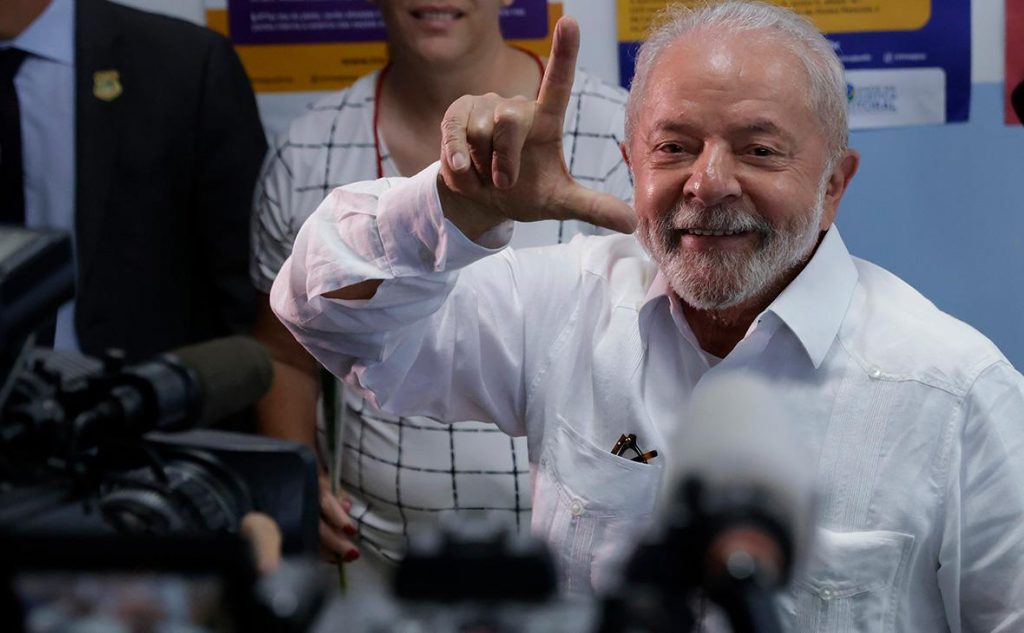
On Monday, October 23, at the initiative of the Brazilian side, a telephone conversation took place between Vladimir Putin and Luiz Inacio Lula da Silva. Considering Brazil’s presidency of the UN Security Council this month, the parties discussed the situation in the Palestinian-Israeli conflict zone. Also, they expressed positions regarding the need for a ceasefire and further advancement of the peace process on a generally recognised international legal basis, providing for the creation of an independent Palestinian state.
Putin and Lula da Silva also touched upon the Ukrainian issue, in which the Brazilian President spoke to find ways to resolve the conflict through political and diplomatic means.
Official reports following the meeting also noted that both sides expressed a desire for further close interaction within the framework of BRICS and the G20, which Russia and Brazil, respectively, will chair next year.
Outcomes and outlook:
For Putin, Brazilian President Lula da Silva is now an incredibly desirable ally, not only because of Brazil’s presidency of the UN Security Council.
First, Brazil and Russia could form an “internal faction” within the BRICS. Secondly, close relations with Brazil strengthen Russia’s position in Latin America (which weakened after the United States began to build new ties with Venezuela and Cuba, Russia’s two key counterparties in the region).
Thirdly, Brazil and Russia have mutual interests in high technology (in particular, space exploration). Lula da Silva takes a critical position towards Ukraine and Vladimir Zelensky. Any contact between Russia and Brazil is essential in tracking new alliances and configurations within the Global South.
- Meeting of Vladimir Putin with Deputy Prime Minister – Minister of Industry and Trade Denis Manturov
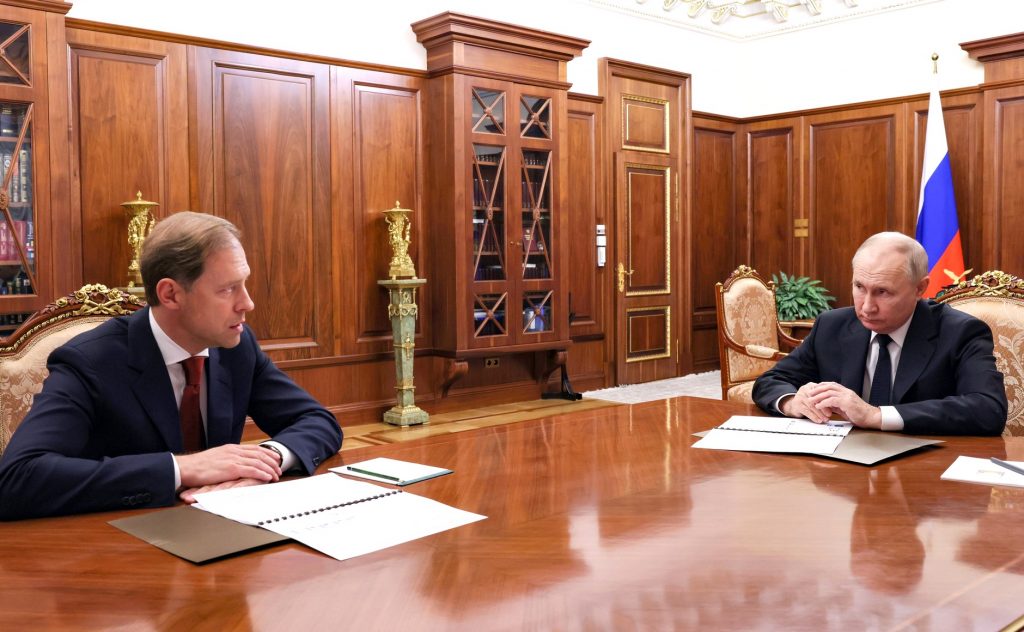
On Tuesday, October 24, Vladimir Putin met with Deputy Prime Minister – Minister of Industry and Trade Denis Manturov. The official topic of the meeting was a discussion of the results of the country’s industrial sector for the first half of the year. During the open part of the meeting, Denis Manturov reported on the main indicators of the industrial sector and also shared the main plans for its further development.
Key theses:
- Manturov: “According to the forecasts of the Ministry of Economic Development, by the end of the year, the manufacturing industry should show growth of about seven per cent. According to the results, as you have already said, 6.2 per cent.”
- Manturov: “For the automobile industry and woodworking: when you paid attention to this at the beginning of the year, these industries were not yet in the positive zone. Now they have recovered, there is a good increase in indicators. And what is very important, the accumulated volume of loans amounted to a record raising of funds by our enterprises – 15 trillion rubles.”
- Manturov: “The second important indicator is the business activity index. By the end of September, it was already more than 54 [points]. This suggests that the workload of enterprises is growing. This is a record figure since 2017.”
- Manturov: “Over eight years, we ensured the consolidation of enterprises and assets that were in a rather difficult financial condition because in the 90s, zero years, unfortunately, the products of the machine tool industry were in little demand – mainly imported products were purchased. But over this period, over the past eight years, we have developed a new modification, a new nomenclature, which is becoming extremely in demand today.”
- Manturov: “If we talk about the future, then the main emphasis in the updated federal project is not only on traditional metalworking and metal-cutting machines; The main focus is on modern equipment for additive technologies and robotics.”
- Manturov: “We have formed a budget. An unprecedented volume for this industry is 300 billion rubles until 2030; for three years, the budget already costs 138 billion rubles, and the total volume of the federal project is more than 500 billion rubles with regional and extra-budgetary investments.”
- Manturov: “Taking into account the identified directions, this is all aimed at ensuring the technological sovereignty of our country and providing sectors of the economy and industry with modern products.”
Outcomes and outlook:
Denis Manturov is considered a “Putin’s favourite”, a representative of Sergei Chemezov’s administrative group in the government, as well as the person to whom Russian industry is tied, including the military-industrial complex.
Today, Denis Manturov and Maxim Oreshkin are considered the most likely candidates for the post of head of the Government of the Russian Federation instead of Mikhail Mishustin, and therefore, automatically occupy the first positions in the lists of possible successors to Putin. Putin, who a year ago communicated quite harshly with Manturov, is now quite favourable to the industrial Deputy Prime Minister, and soon, Manturov will play one of the most essential roles in Russian politics.
However, Manturov’s main problem is considered to be his closeness to Sergei Chemezov and his group of influence in Putin’s inner circle. This factor may indicate that if he is nominated for the post of Prime Minister, representatives of other groups may demonstrate open disagreement with such personnel appointments. Thus, it can be stated that Maxim Oreshkin has additional advantages against this background.
- Telephone conversation between Vladimir Putin and Türkiye President Recep Tayyip Erdogan
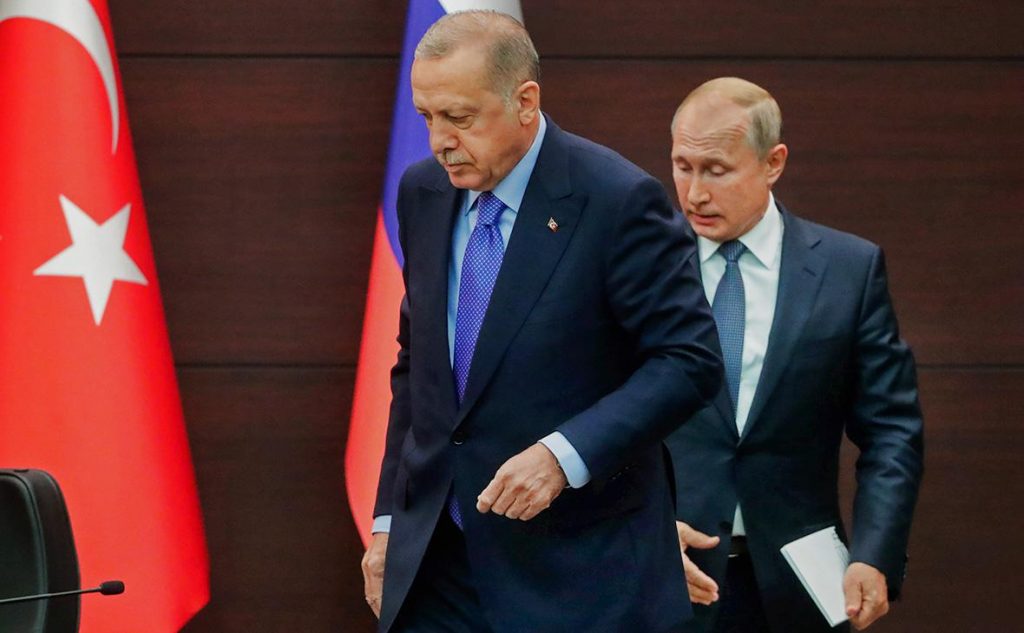
On Tuesday, October 24, at the initiative of the Turkish side, Vladimir Putin had a telephone conversation with Türkiye President Recep Tayyip Erdogan. According to official reports, the main topic of conversation was the acute crisis situation in the Middle East, which, in the opinion of both sides, could go beyond the Palestinian-Israeli conflict. Putin and Erdogan also raised the issue of the large number of civilian casualties and the catastrophic deterioration of the humanitarian situation in the Gaza Strip. The leaders of both countries declared the inadmissibility of striking residential areas and religious and social facilities.
Putin and Erdogan also emphasised that the positions of Russia and Türkiye practically coincide and are focused on the implementation of the well-known two-state formula, which provides for the creation of an independent Palestine coexisting with Israel in peace and security.
It is noted that during the conversation, Putin also congratulated Recep Tayyip Erdogan on the approaching centenary of Türkiye.
Outcomes and outlook:
In fact, Putin and Erdogan are pursuing a planned and coordinated policy in the Middle East. This policy is aimed at reducing American influence and the Western influence on events around Israel and HAMAS, as well as preventing the conflict from spreading to other countries in the region (in which the United States is interested) in general.
Both Russia and Türkiye morally support the Palestinians and accuse Israel of failure to implement the Oslo Accords (regarding the creation of an independent Palestinian state). For Turkey, the situation is all the more significant since the conflict around HAMAS and Israel unfolded on the historical lands of the Ottoman Empire, precisely on the eve of the centenary of the creation of the Turkish Republic. This is perceived very painfully by conservative Turkish circles, which are considered Erdogan’s support. Putin is trying to act as Erdogan’s ally in the Middle East to redirect his activities from Syria and the South Caucasus.
- Training of strategic deterrent forces with practical launches of ballistic and cruise missiles
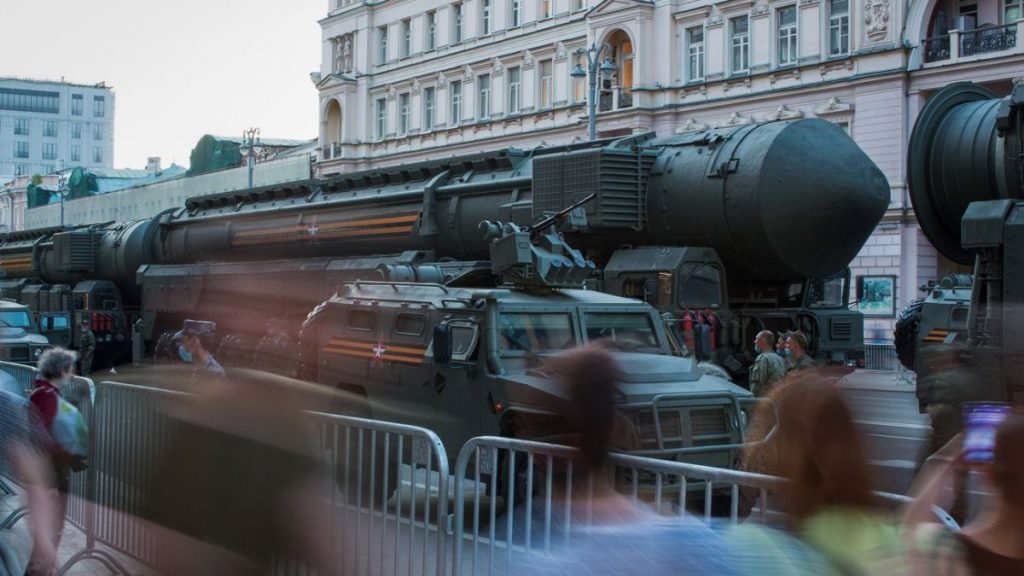
On Wednesday, October 25, a training session was held with the forces and means of the ground, sea and air components of the Russian nuclear deterrent forces. This process was led personally by Putin. During the training, practical launches of ballistic and cruise missiles took place.
During the training, the Yars intercontinental ballistic missile was launched from the Plesetsk state test cosmodrome at the Kura training ground in Kamchatka. The Sineva ballistic missile was launched from the Barents Sea from the strategic nuclear-powered missile submarine cruiser Tula. Also involved in the training were Tu-95MS long-range aviation aircraft, which launched air-launched cruise missiles. The practical launches were controlled by the National Defense Control Center of the Russian Federation.
It is important to note that on the same day, the Federation Council of the Russian Federation will approve the law previously adopted by the State Duma to cancel the ratification of the Comprehensive Nuclear Test Ban Treaty.
Outcomes and outlook:
These trainings should be considered in the context of the “nuclear renaissance” concept, popular in Russia. In fact, Putin is making it clear that by withdrawing from treaties restricting nuclear testing, Russia allows for the possibility of revising nuclear doctrine and using nuclear weapons if a real war breaks out in Europe between Russia and NATO.
In addition, the exercises should dispel the speculation of sceptics who claim that Russia’s nuclear weapons have long been out of order and are essentially a pile of radioactive scrap metal. Russia not only demonstrates the effectiveness of weapons but also, at least once a year, announces the development of new weapons systems that have no analogues in the world. Thus, Russia, deprived of the opportunity for an economic or technical breakthrough, compensates for the lack of arguments for returning to the status of a hegemonic state.
- Meeting of Vladimir Putin with members of the Government
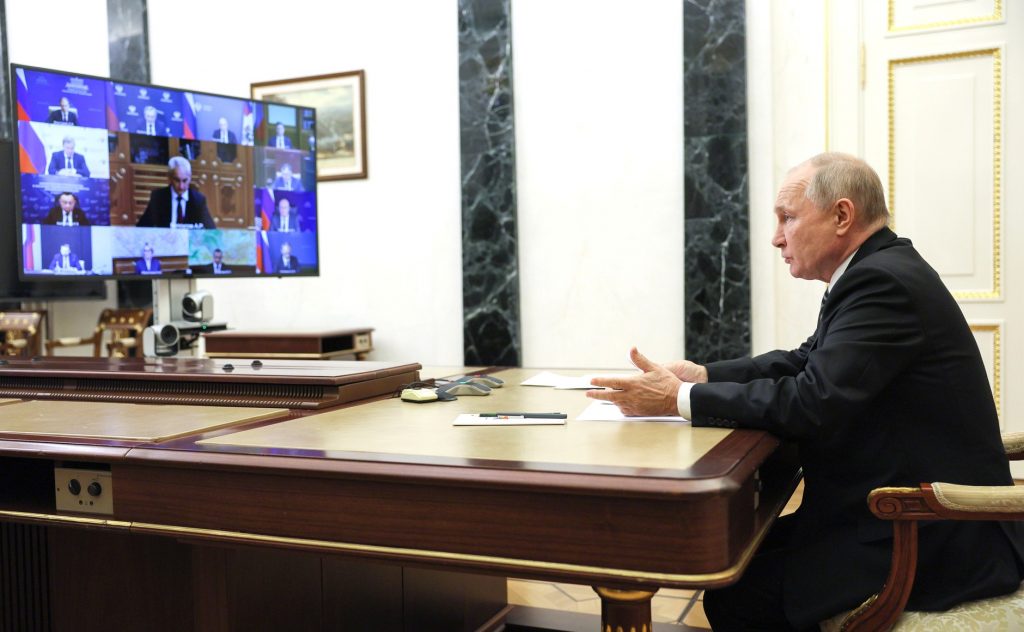
On Wednesday, October 25, Vladimir Putin held a meeting with members of the Government via video link. It is noted that the main topic of the meeting was preparation for the winter season. However, sources indicate that a broader range of issues were discussed. Presentations were made by the Minister of Construction and Housing and Communal Services Irek Faizullin, the Minister of Agriculture Dmitry Patrushev, the Minister of Energy Nikolai Shulginov, the Minister for the Development of the Far East and the Arctic Alexey Chekunkov, the Chairman of the Board of PJSC Gazprom Alexey Miller, as well as the acting head of the Federal customs service Ruslan Davydov.
Key theses:
- Davydov: “This year, special attention was paid to increasing Russia’s foreign trade turnover and building new logistics along the East-West and North-South transport corridors.” The number of customs officers at priority checkpoints was increased by more than a thousand units. The five busiest border crossings on the Russian-Chinese and Russian-Azerbaijani borders, in agreement with partners, were transferred to round-the-clock operation.”
- Davydov: “The long-term problem of queues at the busiest checkpoints in the North Caucasus and the Far East has been almost solved. These are Zabaikalsk, Yarag-Kazmalyar and Verkhniy Lars.”
- Davydov: “This year, foreign trade cargo turnover in the region increased by 14.2 per cent compared to 2022 and 2.4 times for road transport. Trade turnover with China is growing rapidly. Over the nine months of 2023, it increased by $35 billion, or 27 per cent. If such growth rates are maintained, the volume of Russian-Chinese trade could reach $215–220 billion by the end of this year.”
- Davydov: “Since the beginning of the year, confiscated property worth more than 300 million rubles has been transferred to the Ministry of Defense. Goods worth about 100 million rubles and 44 cars were also donated to the All-Russian Popular Front, social, medical and educational institutions.”
- Patrushev: “The key task for us today is, of course, the completion of seasonal fieldwork. Our winter sowing has already been carried out on an area of about 18 million hectares; we are on schedule. According to plans, about 20 million hectares will be sown for the 2024 harvest. This is almost one and a half million hectares more than a year earlier.”
- Patrushev: “The yields of oilseeds, vegetables, and potatoes will exceed the five-year average. We expect that, based on Rosstat data, the grain harvest will be about 140 million tons in net weight, of which about 93 million tons will be wheat. We hope this will be the second result in the history of our country.”
- Patrushev: “Positive dynamics are also expected in livestock farming at the end of the year. In the meat sector, we will reach 16.5 million tons, in milk – by 33.6 million. In the finished products segment, we expect growth in categories such as the production of cheeses, sugar, cereals, meat products and vegetable oils.”
- Miller: “The operational gas reserve in underground storage facilities currently amounts to 72 billion 842 million cubic meters of gas. This is 180 million cubic meters of gas more than last season.”
- Miller: “The maximum daily capacity of underground storage facilities at the beginning of the withdrawal period is 858.8 million cubic meters of gas per day. This is 6.4 million cubic meters of gas more than last year.”
- Putin: “Sergei Vladilenovich Kiriyenko was the Minister of Energy in the mid-1990s. And he, a young minister, was taught by the then Chairman of the Government of the Russian Federation, Viktor Stepanovich Chernomyrdin, how to get through the autumn-winter peak. He will tell you later. We must listen; these were the advice of an experienced leader.”
- Putin: “The climate, of course, is changing, and global warming is obvious, but Russia is a northern country, and no one has cancelled the heating season. Therefore, I kindly ask you to approach all the issues that we discussed today, not formally: everything must be done on time.”
Outcomes and outlook:
The meeting was clearly of a working nature. It was rather interesting in terms of studying how, on the eve of the start of the presidential campaign, Russian citizens are forming an image of Putin as the businessman who keeps all major issues under personal control. It is obvious that Russia, with its resource base, has no problems getting through the heating season. But as a result, this will be chalked up to Putin personally.
- Meeting of Vladimir Putin with Grigory Yavlinsky
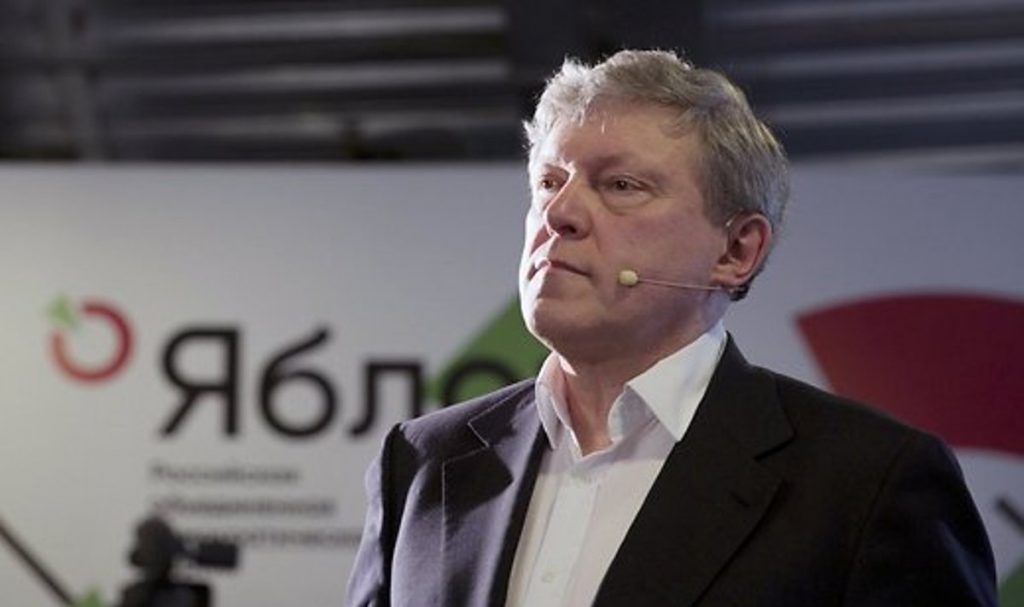
On Thursday, October 26, Vladimir Putin met with the head of the Yabloko party, Grigory Yavlinsky. It is noteworthy that there is no information about this meeting on the website of the President of the Russian Federation; however, a press release was posted on the official website of the Yabloko party, which confirmed the facts of the meeting and also noted that the main subject of discussion during the meeting was the need for an agreement on ceasefire in the combat zone on the territory of Ukraine. The statement also notes that a ceasefire is Yavlinsky’s principled position. The Yabloko leader believes that it is necessary to begin negotiations on a ceasefire as soon as possible and is ready to personally participate in them. Grigory Yavlinsky outlined his position in detail to Vladimir Putin. In addition, the meeting discussed future problems of the Russian economy in the context of fragmentation of the global economic system.
It is especially noted that the 2024 presidential elections were not discussed during the meeting.
Outcomes and outlook:
Putin’s meeting with Grigory Yavlinsky is given an inordinate amount of influence, given Yavlinsky’s microscopic weight in Russian politics. Yavlinsky is unlikely to be seen by Putin as the primary negotiator with Ukraine. No single case that Yavlinsky has undertaken has yet been crowned with success.
Instead, we are talking about the possible inclusion of Yavlinsky in the future negotiating group – as a person genetically related to Ukraine. This most likely explains the “rehabilitation” of Mikhail Fridman. Yavlinsky and Fridman are perceived quite positively in the West, which dictated Putin’s decision to pull Yavlinsky out of political mothballs. The idea of a ceasefire voiced by Yavlinsky is most likely a touchstone for the Russian side in the future negotiation process.
- Statement by the Russian Ministry of Defense on the interception by Russian air defence systems of a Ukrainian drone near the Kursk NPP
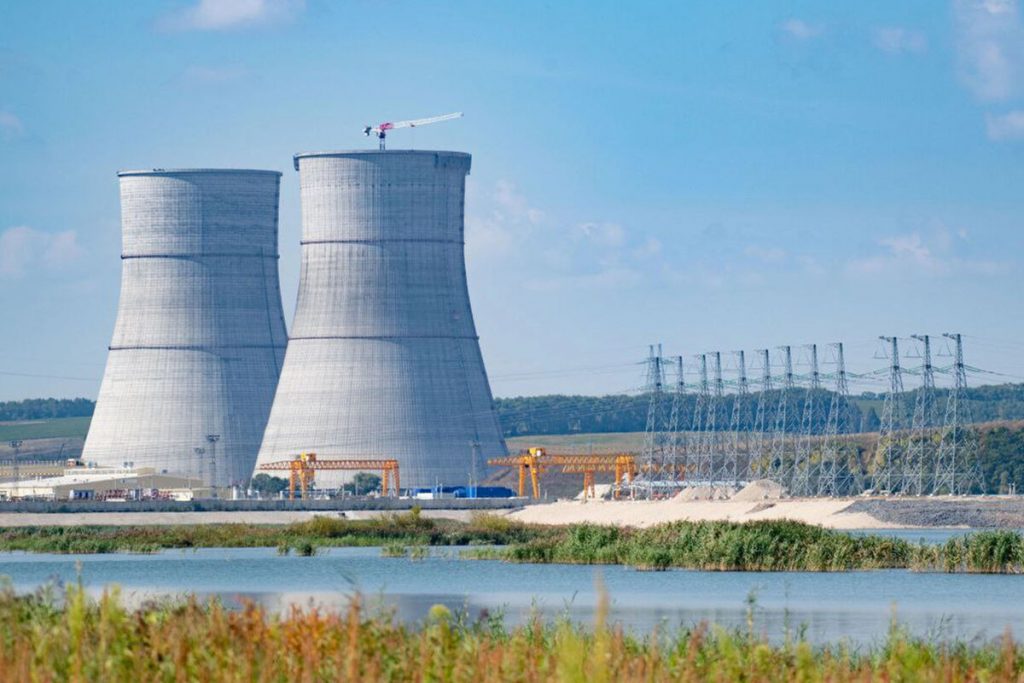
On Thursday, October 26, after an evening attack by Ukrainian drones on Russian territory, the Russian Ministry of Defense announced that Russian air defence systems intercepted a Ukrainian drone over the Kursk region in the Kurchatov area, which is located next to the Kursk NPP. Sometime later, the press service of the Kursk NPP stated that it was the nuclear plant that was the target of the evening drone attack. The statement also notes that there were only three UAVs, which were successfully eliminated using air defence systems, and the nuclear power plant itself is operating as usual. There were also no injuries or damage.
However, on Saturday, October 28, the Russian Foreign Ministry announced that during an attack by Ukrainian UAVs, one of them crashed into the nuclear waste warehouse of the Kursk NPP, damaging its walls, and two fell on the station’s administrative building complex.
At the same time, it is essential to note that on October 25, as a result of a Russian missile and UAV attack, powerful explosions occurred in the area of Slavuta, Khmelnytskyi Oblast. The city is located close to the Khmelnytskyi NPP. After some time, representatives of the Ukrainian Armed Forces stated that they did not know where exactly the missiles and UAVs were heading since all targets were destroyed by air defence systems.
Outcomes and outlook:
Recently, the topic of the nuclear threat has returned to the “diplomatic arsenal” of Russian politicians. After several statements by Putin about the absence of a plan to use nuclear weapons (without corresponding actions on the part of the West), as well as several statements from the leadership of the IAEA regarding the stable situation around the Zaporizhzhia NPP, there is another information campaign accusing both sides of attempting to carry out attacks on nuclear generation facilities.
It is possible that, on Russia’s part, such rhetoric may indicate an attempt to force the negotiation process, without which, according to the Russian side, a man-made disaster of a massive nature could occur. In this case, it is worth assuming that accusations of targeted attacks on Russian nuclear power plants will be heard more often.
- Sergei Lavrov’s visit to Tehran and participation in the “3+3” format meeting on the South Caucasus
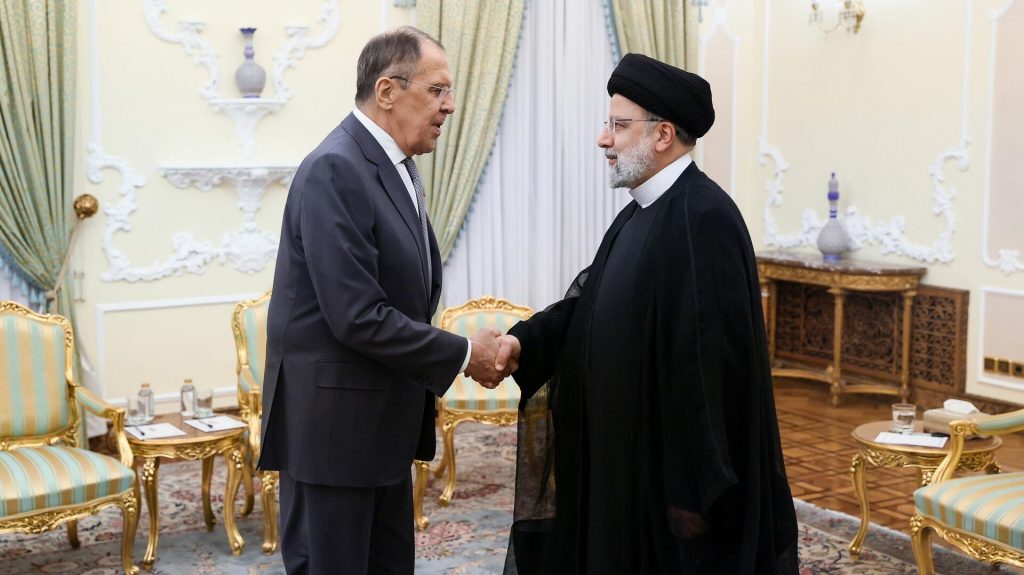
On Monday, October 23, Sergei Lavrov arrived on a working visit to Tehran, where he took part in a meeting of the “3+3” format on the South Caucasus. The event was also attended by the foreign ministers of five countries: Russia, Iran, Türkiye, Armenia and Azerbaijan – Sergey Lavrov, Hossein Amir Abdollahian, Khakan Fidan, Ararat Mirzoyan and Jeyhun Bayramov. The Georgian side refused to participate in the meeting.
The Iranian news agency IRNA noted that the heads of foreign affairs departments discussed at the meeting, in particular, issues of regional cooperation in the field of security. At the same time, the main point of the story was the issue of peace negotiations between Azerbaijan and Armenia.
Sergei Lavrov also held a separate meeting with Iranian President Ebrahim Raisi.
Lavrov’s statements following the “3+3” format meeting:
- “The parties agreed that the participating countries will appoint special representatives. They will formulate national ideas within each of the mentioned areas. Then this will be coordinated by Turkish colleagues, who will host the second ministerial meeting (scheduled for the first half of 2024).”
- “We paid a lot of attention to the geopolitical situation in the region. They expressed satisfaction with the processes of normalisation of relations between Azerbaijan and Armenia, Azerbaijan and Iran, Armenia and Türkiye. On all these issues, Russia actively supports them. We will continue to do this.”
- “We couldn’t help but talk about Palestine. We have close positions. Russia does not accept any manifestations of terrorism or violence in violation of international humanitarian law, including the indiscriminate use of force. We proceed from the fact that it is necessary to prevent the taking of people hostage and the blockade of populated areas with civilian populations.”
- “As for the attitude of this format to what is happening between Yerevan and Baku, by and large, the conflict has been resolved. The parties agreed that Nagorno-Karabakh belongs to Azerbaijan. This was the main unsolved problem.”
- “Russia plays a coordinating role concerning all these processes. “In itself, an additional platform (in addition to the CIS and other formats where Baku and Yerevan are present), dedicated to expanding positive trends, creating conditions for sustainable development of the entire region, objectively helps to resolve remaining issues in relations between Azerbaijan and Armenia.”
- “[On the Palestinian-Israeli conflict] Regarding the forecasts of US Secretary of State Antony Blinken regarding the intervention of “third forces” in this conflict. The United States is among the leaders in those already intervening. This includes sending two aircraft carrier groups and several thousand soldiers with all the necessary weapons, including heavy ones, to the conflict zone. The more such proactive steps there are on the part of any state, the higher the risk and danger that the conflict will escalate.”
Following the meeting in the “3+3” format, a joint communiqué was adopted:
- Given the importance of developing friendly relations between countries based on mutual interests and good neighbourliness, the Ministers emphasized in this regard the importance of peaceful resolution of disputes, respect for sovereignty, political independence, territorial integrity, inviolability of internationally recognized borders, non-interference in internal affairs, prohibition of threats force or its use and respect for human rights based on all principles of the UN Charter;
- Having expressed their views on various international issues, the Ministers discussed the most significant problems of the region and emphasized the importance of platforms such as the 3+3 Regional Consultative Platform in providing opportunities for constructive dialogue and establishing mutually beneficial cooperation between the countries of the region, which have a primary role in this matter;
- The Ministers emphasized the positive impact of economic cooperation in terms of strengthening mutual trust, the well-being of nations and regional stability;
- The ministers emphasized the importance of cultural cooperation, people-to-people contacts and joint projects in the fields of education, science, tourism, culture and sports;
- To enhance lasting peace and economic development of the region, the participating countries will strengthen bilateral and multilateral consultations and cooperation;
- The ministers welcomed the ongoing processes of normalization and development of relations between all countries of the region;
- Positively assessing the results of the meeting, the Ministers confirmed the openness of this platform to the equal participation of Georgia;
- The ministers also exchanged views on the situation in Gaza. Stressed the need to immediately stop targeting innocent civilians;
- The Ministers of Foreign Affairs of the Russian Federation, the Republic of Armenia, the Republic of Azerbaijan and Türkiye thanked the Minister of Foreign Affairs of the Islamic Republic of Iran for the warm welcome and successful holding of the meeting.
Outcomes and outlook:
Russia continues to clarify that it will play an important role in the Middle East-South Caucasus region. It is essential for her to show that Moscow’s efforts to resolve the situation are more effective than the efforts of the United States. Russia is also trying to manoeuvre between the interests of both Armenia and Azerbaijan and the interests of other regional players – Türkiye, and Iran – relations with which are strategically important for Russia.
At the same time, several sources claim that the main topic of the meeting in Tehran was a discussion of the situation in Armenia, where, after the recent escalation around Nagorno-Karabakh, a similar escalation is expected in the Zangezur corridor area. Sources also note that the main reason for the possible escalation is the position of Nikol Pashinyan, who refuses to comply with previously reached agreements on transit issues through the only road connecting Azerbaijan with its exclave. It is possible that soon, we will witness the emergence of another hot spot in the South Caucasus, where the interests of many regional players will be involved.
- Visit of Sergei Lavrov to Minsk
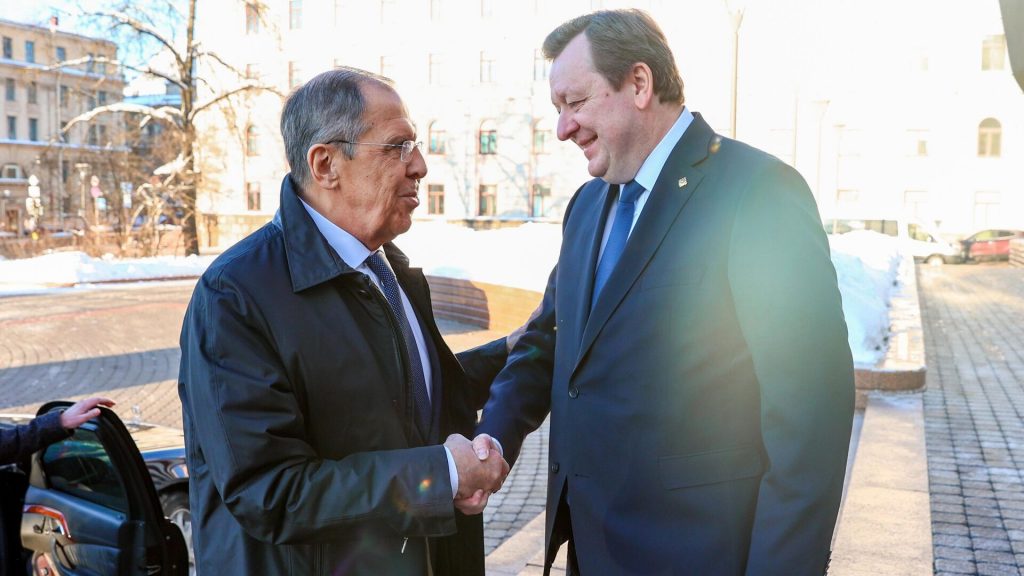
On Thursday, October 26, Sergei Lavrov arrived on a working visit to Belarus. In Minsk, he held talks with the Minister of Foreign Affairs of Belarus, Sergei Aleynik and also met with Alexander Lukashenko. However, the official purpose of the visit was participation in the high-level international conference “Eurasian Security: Reality and Prospects in a Transforming World.”
Key theses of Lavrov’s speech:
• “International relations are experiencing new, truly epochal, tectonic shifts. A new, fairer multipolar world order is being born before our eyes. It is based on the cultural and civilisational diversity of the modern world, the natural right of peoples to determine for themselves the paths and models of their development, implementing the most important principle of the UN, written in its Charter – the sovereign equality of states.”
• “The geopolitical balance of power continues to change not in favour of the “historical” or “collective” West. This is beginning to be recognised, including publicly, by representatives of Western elites talking about the end of the post-Cold War era. This was stated by US President Biden and, not so long ago, French President Macron and other leaders of Western countries.”
• “The efforts of the World Majority countries, including Russia, to promote a positive, forward-looking interstate agenda in Eurasia and other regions of the planet are encountering fierce resistance from the Western minority. The United States and its satellites do not hide their goals – to maintain dominance and monopolise the right to make globally significant decisions. Unilateral, non-consensus “rules of the game” and “rules-based order” are being imposed on the international community. About those who disagree, the “collective West” uses a wide range of methods of pressure – from unilateral coercive measures to demonisation in the global information space.”
• “The system of confidence-building measures and arms control in Europe has been destroyed by the hands of Westerners. It is enough to mention the US withdrawal from the treaties on missile defence, the ban on intermediate- and shorter-range missiles, and the “open skies” treaty. Increased strategic risks are created as a result of the forward deployment of American nuclear weapons in several European countries and the implementation of “joint nuclear missions.” This has an extremely destabilising charge and, against the backdrop of a general increase in threats from NATO, forces us to resort to compensating measures.”
• “The true intentions of Western politicians were once again revealed when Washington and Brussels arrogantly rejected proposals put forward by Russia in December 2021 to agree on reliable security guarantees and to resolve the situation around Ukraine without involving it in NATO and without using the Kyiv regime against legitimate Russian interests. They didn’t even want to talk to us seriously.”
• “Our willingness to negotiate, demonstrated in March and April 2022, led to the agreement of principles between the negotiators of Moscow and Kyiv. But they seemed insufficient for the USA and London. The Anglo-Saxons simply banned it. This is well known. All those involved in this event write about this: former German Chancellor Schröder and journalists such as Hersh in the USA, and many others. Now, it’s difficult to talk about anything when the West declares daily that Russia must be broken up on the “battlefield,” Zelensky has forbidden himself and all his employees to enter into any negotiations with Russia, with the Putin government.”
• “It is obvious that Western aggression against Russia is only part of the “crusade” of the United States and its satellites against any member of the international community who demonstrates independence and defends national interests.”
Lavrov also answered several questions from journalists, voicing his opinion regarding possible negotiations on the Ukrainian issue:
• “The Kyiv regime, probably realistically realising the prospects for continued hostilities, was ready to sign this document [guarantees of non-entry into NATO]. They were banned from Washington and London. Schroeder said this just recently in a long interview.”
• “When we are accused of being against negotiations, this is a lie. We know that the West continues to incite the Kyiv regime to continue the war. And if we are talking about negotiations, then let Zelensky cancel the decree that he signed a year ago and which he forbade himself and all his officials from negotiating with the government of Vladimir Putin. All this is hypocrisy, expressed in idle talk about negotiations, which Russia allegedly avoids. We never shy away from serious offers. There are no serious proposals after they were thwarted by the Anglo-Saxons in April 2022. But once on the battlefield, then on the battlefield. This will, of course, continue. The whole truth is on our side.”
Outcomes and outlook:
Ascolta sources note that despite the official reason for the visit – participation in an international conference – the main purpose of Lavrov’s visit was to discuss new aspects of the relationship between Moscow and Minsk after Putin’s visits to Beijing and negotiations with Xi Jinping.
Sources note that during the closed part of the negotiations, Xi Jinping made it clear to Putin that he does not support the idea of complete integration of Belarus and Russia through the final creation of a Union State. Xi Jinping’s main message was allegedly that Belarus, and accordingly Lukashenko, is an essential partner of China and should remain in its zone of influence.
If this information is confirmed, then it can be assumed that the accelerated integration process, which has been observed recently, may encounter fundamental changes. Its timing will either be shifted (previously, the completion of the political process was predicted until the end of 2023 – beginning of 2024) or even postponed indefinitely.
- Visit of the HAMAS delegation to Moscow
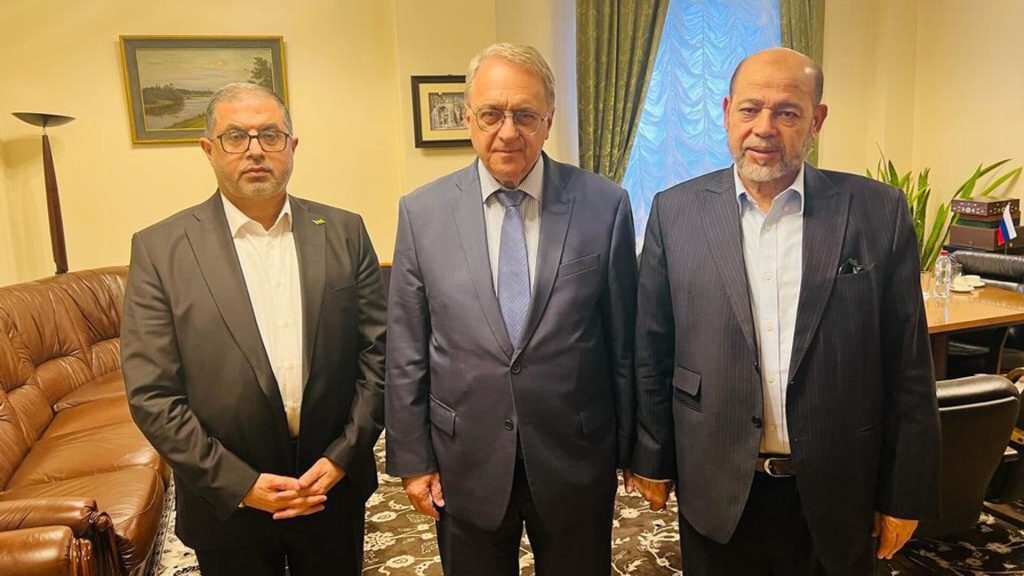
On Thursday, October 26, a HAMAS delegation led by Abu Marzuk, a member of the group’s Politburo, flew to Moscow on a visit. This visit was not announced in advance, and after the media began writing about it, Russian Foreign Ministry Speaker Maria Zakharova officially stated that “representatives of the relevant Palestinian movement are on a visit to Moscow,” without providing any details.
Already in the evening, the Russian Foreign Ministry published an official statement according to which “contacts took place in continuation of the Russian line for the immediate release of foreign hostages” held captive in the Gaza Strip. In addition, according to the Russian Foreign Ministry, the issue of evacuating Russian and other citizens from the enclave’s territory was discussed. It also became known that in Moscow, the HAMAS delegation met with the Deputy Minister of Foreign Affairs of the Russian Federation and Special Representative of President Mikhail Bogdanov.
In turn, following the meeting, HAMAS representatives stated that Abu Marzuk discussed “aggression against Gaza” in Moscow, insisting on the right to “resist the Zionist occupation by all available means.” “The movement’s delegation highly appreciated the position of Russian President Vladimir Putin and the efforts of active Russian diplomacy.” The HAMAS statement makes no mention of hostages.
Later, in an interview with Russian media, Abu Marzouk said: “We held meetings at the Ministry of Foreign Affairs, discussed everything related to the Palestinian problem, how together we will determine the future for the entire region and humanity, different from the future that the United States is drawing.” He also emphasised that HAMAS came to Moscow at the invitation of the Russian Foreign Ministry.
Outcomes and outlook:
The meeting with HAMAS representatives was not important for Putin, but its demonstrative nature. In this way, he provided tacit support to the Arabs in their conflict with Israel. But at the same time, the form (meeting) was proposed in such a way as to leave the door open for Israel. If the first information passions subside, Putin could offer a similar format for the Israeli delegation. In this case, the meeting format at the level of functionaries of the Russian Foreign Ministry remains absolutely logical.
At the same time, in parallel, the topic of the possible release of hostages with Russian passports is beginning to develop, the theoretical possibility of which has already been announced by HAMAS representatives. It is possible that shortly, Russia will try to offer its services as a negotiator between Israel and HAMAS.
- Anti-Israeli protests in Dagestan
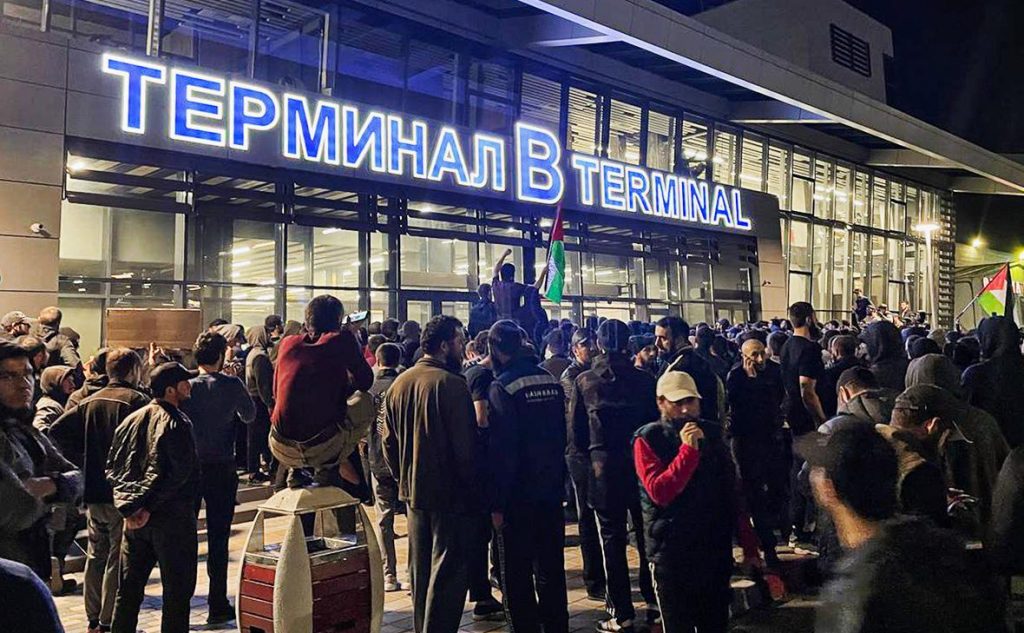
On Saturday, October 28, in the city of Khasavyurt (Dagestan), a crowd of local residents gathered at the hotel where “refugees from Israel” were allegedly staying. The protesters shouted various slogans and also called for the Israelis to be burned. Later, they entered the hotel and began checking the guests’ passports in search of Israelis, who, however, were not found there.
The very next day, anti-Israeli protests continued in the Muslim republics of the Russian North Caucasus. At the same time, Russian law enforcement agencies stated that such actions are organised throughout Dagestan through the telegram channel “Morning of Dagestan,” which is allegedly run by the Ukrainian special services.
Timeline:
- On Saturday, October 28, information appeared on the telegram channel “Morning of Dagestan” that refugees from Israel were staying in one of the hotels. This message was followed by calls for everyone to gather under the hotel.
- On Sunday, October 29, residents of Dagestan gathered at the Makhachkala airport and checked the passports of passengers looking for Israeli citizens. They also demanded that the Jews be expelled from Dagestan.
- The head of the republic, Sergei Melikov, criticised the anti-Semitic actions and said that this was an attempt to “stir up the situation in our country.” He said that resources on the Internet that are not from Russia are to blame for the situation.
- Sometime later, a crowd of protesters broke into the airport in Makhachkala and surrounded the aircraft on the runway. Because of this, the people who got off the aircraft were brought back inside. Special forces arrived at the airport, and the facility was closed to receive aircraft.
- Israel responded to the anti-Semitic riots in Makhachkala: “The Prime Minister’s Office, the Foreign Ministry and the National Security Council are monitoring developments in Dagestan in southern Russia. “Israel expects Russian law enforcement agencies to protect the safety of all Israeli citizens and Jews, wherever they are, and to act decisively against pogroms and wild incitement directed against Jews and Israelis,” Netanyahu’s office said in a statement.
- Religious leaders of the Russian Federation commented on anti-Israeli actions in Dagestan. The Spiritual Administration of Muslims of Russia called on its fellow believers not to go to these protests. At the same time, the Chief Rabbi of Russia, Berel Lazar, called on believers of different faiths to do everything possible to prevent extremists from “burning the bridges of friendship” between the peoples of the Russian Federation.
- Vladimir Zelensky, commenting on the situation in Makhachkala, said that “Russian anti-Semitism and hatred of other nations is systemic and deeply rooted.”
- Towards evening, arrests began at Makhachkala airport. At the same time, individual protesters tried to overturn a police car, and a video was circulated on Telegram channels in which the crowd forced the police to apologise for trying to obstruct the protesters.
- Rosaviation announced the closure of Makhachkala airport until November 6.
- The head of Dagestan, Melikov, made another statement in which he criticised those who stormed the Makhachkala airport today: “There is no courage in waiting in a crowd for unarmed people who have not done anything prohibited. There is no determination to break into the airport territory. There is no honour in swearing at strangers, reaching into their pockets and trying to check their passports! There are no good intentions in targeting women with children who were undergoing treatment abroad. “What happened at our airport is outrageous and should receive an appropriate assessment from law enforcement agencies! And this will definitely be done.”
Outcomes and outlook:
The events in Dagestan are clearly pre-planned. Although a large number of Jews traditionally live in Dagestan, they play an essential role in the life of the republic. Versions regarding the provocation of anti-Jewish protests by subversive centres on the territory of Ukraine or Turkiye, as well as the attempt to link oppositionist Ilya Ponomarev to managing the protests, look too far-fetched.
Most likely, the idea is about provoking a conflict, which sets the main goal: to remove the leader of Dagestan Myalikov (oriented towards the head of the Russian Guard Zolotov). Taking into account the conflict between Zolotov and Kadyrov, as well as Kadyrov’s influence on the situation in Dagestan and his ties with local elites, it can be assumed that the riot was inspired by neighbouring Chechnya (mainly since Myalikov blamed “some representatives of the Dagestan elites”).
It is also possible that this is a kind of “greeting” to the plenipotentiary representative of the President of the Russian Federation in the North Caucasus Federal District, Yuri Chaika, for whose place the head of North Ossetia-Alania, Sergei Menyailo, is now actively vying (not so long ago he met with Putin and discussed for a long time issues that go far beyond the competence of the head of the republic). Thus, the idea is not about real sentiments but about the use of radical elements in banal personnel battles.

